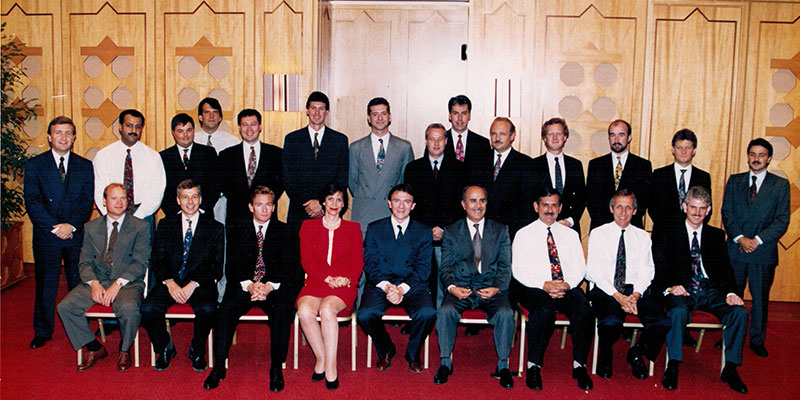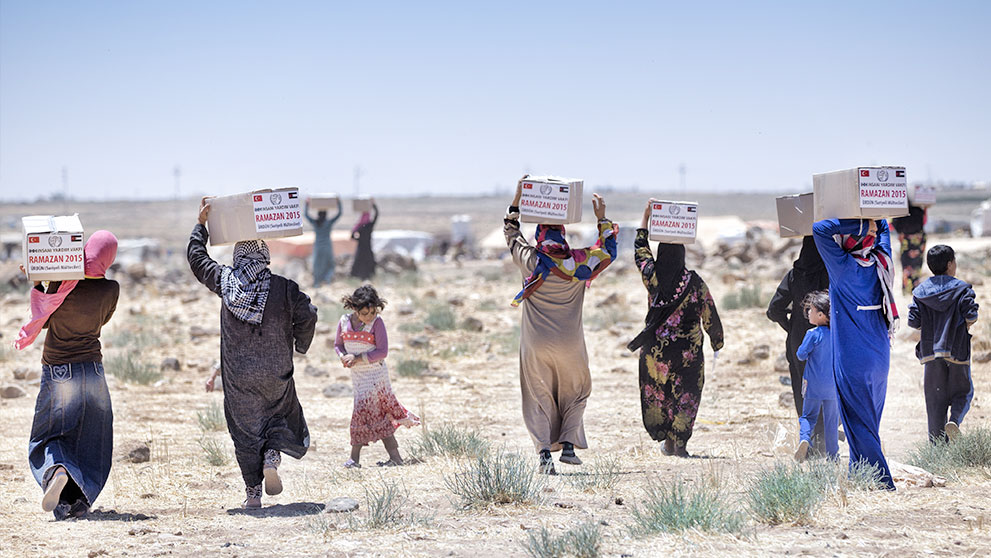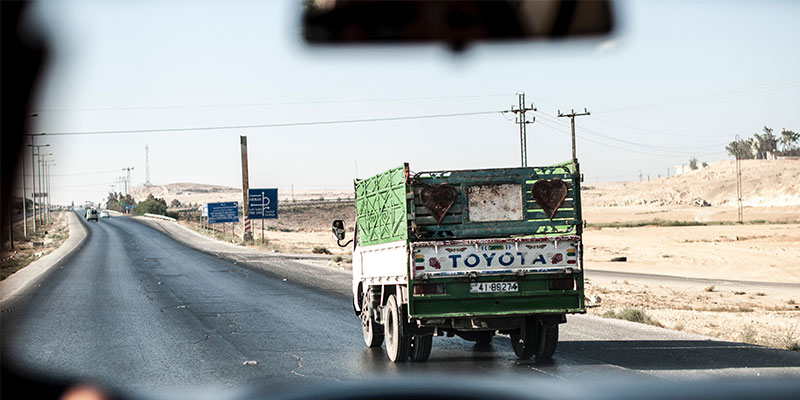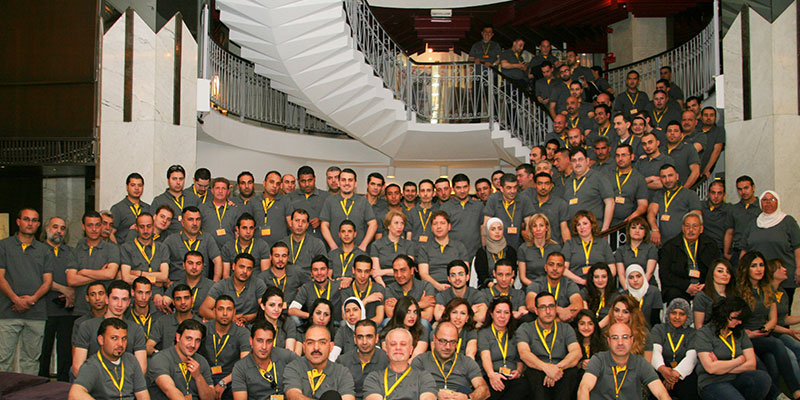Grow your business with the Discover newsletter
Logistics advice & insights straight to your inbox
Subscribe now
The Syrian civil war has torn the country apart. Families have been devastated, homes abandoned. But for many, life still goes on. The Syrian capital, Damascus, in the south near the border with Lebanon and Israel, is showing fragile signs of a return to normal life.
Buildings are still in ruins, many of its citizens have left, but most are trying to get on with their lives. They go to work, visit coffee shops and head out to bars at night. Schools are open. Shops still have customers. And businesses like DHL Express Syria keep on running. In this article, we find out how it stayed in business, despite the civil war.
Businesses play an important role in a country ripped apart by war. A job and an income are vital to keep some sense of purpose and normality. Sense of responsibility keeps you going," says Khulud Halaby, who has been country manager of DHL Express in Syria since the mid-1990s. She’s seen the changes first hand. “Before the war, the Syrian economy between 2000 and 2011 was accelerating upwards at an incredible pace,” says Halaby. “Then the war came and destroyed that. We’ve lost a generation. Some children can’t remember a time before the war.” Of course, many businesses had to shut down or leave Syria. "Our competitors have left Syria. But DHL kept going – it kept us feeling alive. It kept us part of the network, connected to the organization."

“On a ‘normal-as-possible’ working day, I travel between our temporary country office in Damascus City and any of the 12 sites across Damascus State, which is a huge area to cover.”
“Road transport is difficult now because of the large number of security checkpoints and traffic jams. A trip across town that used to take 15 minutes now takes one and a half hours. We relocated our airport Syria Country Office (SCO) operations – IT, ground operations and customer service – inside Damascus city. It had gotten simply too dangerous. Snipers were shooting at vehicles. Now the roads are safe again, we are rehabilitating our SCO planning to move back. In fact, we’re expanding."
DHL Express's Syria team is proudly multicultural. "At DHL it doesn’t matter where you’re from, the color of your skin, your religion, what god you follow. I’m proud to say we have Sunni Muslims, Shia Muslims, Alawite, Sufi, Roman Catholic, Christian Orthodox, Protestant, Jewish Syrians, Kurds, and Charkas all working together.” But DHL Express's Syria branch is also filled with courageous individuals. One employee working in Aleppo showed such bravery that he won worldwide admiration within DHL and, unsurprisingly, was given global recognition as an Employee of the Year.

The fragile domestic situation means DHL Express delivers mostly internationally to and from Syria, with domestic parcels making up only a small percentage of business. "Our customer base has changed drastically. Our business customers have mostly disappeared. The Syrian economy has been crippled by the war."
Today, DHL Express in Syria has taken on a new role: delivering aid to the Syrian people who need it most. DHL collaborates with the various UN aid organizations to get aid around the country, by air or road. "The UN's World Food Programme supplies us with 50kg bags of sugar, rice and other essentials for repacking in family size bags and prepare a carton box including several food essentials to be delivered through non-governmental organizations to most needy families"

No one knows what will happen next, but some parts of Syria are showing signs of renewed peace that could lead to recovery. Khulud believes Syria's community spirit will help it through: "Syrians have a very strong sense of caring for family and neighbors. DHL Express is expanding in the country, despite the shadow of the continuing civil war. Whatever happens, DHL Express will continue to look after its employees and help whenever it can, to get essential aid to those in need."
Despite all that has happened in Syria, Khulud – who lived and studied in France for 18 years – believes in the Syrian people and Syrian culture. "I wouldn’t live in Europe again. Life here, in Syria, is so much easier, so much nicer, people are so caring.
Khulud Halaby has been in charge of DHL Express in Syria for over 25 years, so she knows the Syrian business mentality, how to keep a business running even when the economy has fallen apart and capital has dried up.
"No one, and no single team, can be expert in everything. Seek the opinion of others; everyone’s life is a different experience," says Khulud. Call in the experts, internal or external. And base your recruitment drives on the skills you don't have. Employ people more knowledgeable than you so you personally and your team can benefit from their input and go upward and improve yourself.
"Your people are the soul of your business. Here in Syria, inflation is sky high so we raise salaries on regular basis – no one needs to ask for a pay rise. We do everything we can; from team social events to helping them find housing and offering them our own local accommodation. We participate in all the DHL Express international events: Regional Football Competition, Health Week, Appreciation Week … the list goes on.

"Before the war, our ad hoc, front-counter revenue was approximately 40% of our business, today it is 70% – businesses have shut down. The mix of work changed. Now with the war calming down and with reconstruction on the horizon, we are hoping some businesses will reopen. The key is to understand your new customers’ new needs and adjust accordingly especially that co-loaders have flourished at incredibly low rates. The war has rendered the element of “express” less valuable.
"In 2012, businesses started to go downhill and we found ourselves with free time on hand”. Part of Khulud's response was to set aside for additional team training. "We talked about time management, general management, basic rules of self-improvement and other important topics. All employees were included from couriers to top managers. You never know who will your next manager be. Everyone loved it, took it seriously and continued the trend of self-improvement after the training sessions stopped. A good manager should be a mentor and a teacher: You are as good as the people you employ.”